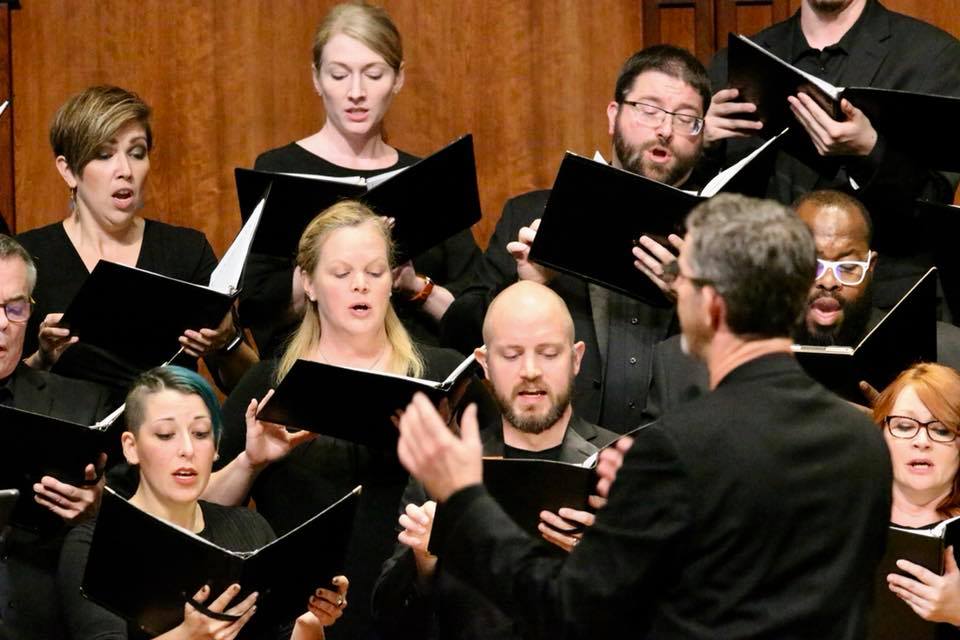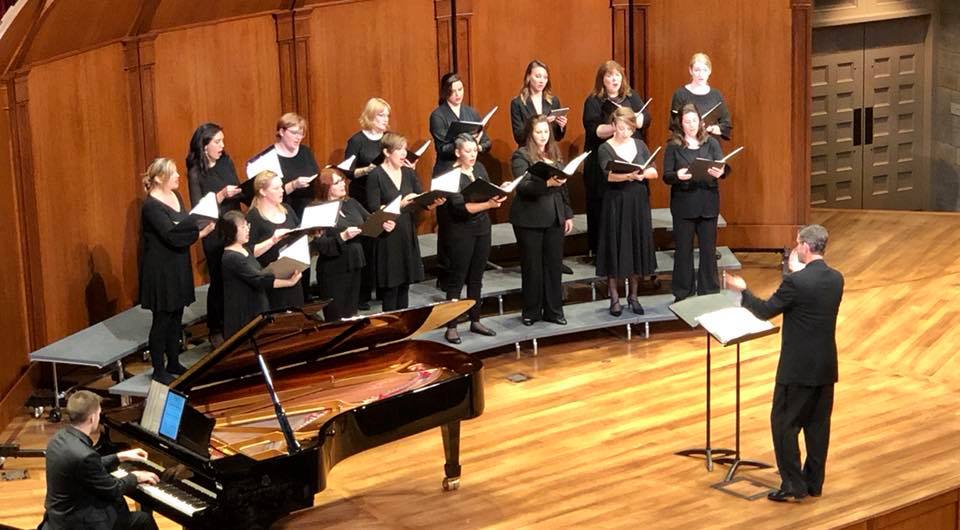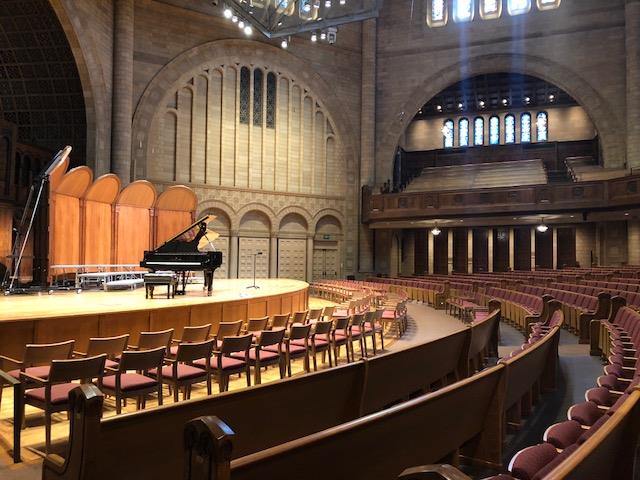by Daniel Hathaway

Coming from an era when war was still glorified, Clément Janequin’s La Guerre describes the conflict between the French forces of François I and the Swiss in the 1513 Battle of Marigan. “Victory to our noble King Francis!” the singers cry, after representing a fierce battle in onomatopoetic detail. The singers created vivid pictures in this exuberant opening work before the program took a more solemn turn and never looked back.
The Thirty Years’ War of 1618-1648 and the controversial bombing of Dresden by British and American forces in mid-February of 1945 inspired MacPherson’s choice of two works, Heinrich Schütz’ Selig sind die Toten, and Rudolf Mauersberger’s Wie liegt die Stadt so wüst. Both composers worked in Dresden, and while Schütz was inconvenienced — his male choristers went off to fight — Mauersberger was directly affected: he lost a dozen choirboys in the firestorm, and his Kreuzkirche was set on fire for the fifth time in its history.
After the comforting Schütz motet, Mauersberger’s haunting setting of prescient words from The Lamentations of Jeremiah was nothing short of devastating.
How desolate lies the city that was full of people.
All her gates stand deserted.
How the stones of the shrine lie scattered all over the streets.
Felix Mendelssohn’s lovely Verleih’ uns Frieden gnädiglich (“Graciously grant us peace in our time, O God”) served as a balm between the Mauersberger and Aaron Rosenthal’s Voices of Terezin, tragically charming settings of poems written by doomed children in the “model” Nazi propaganda camp known as the Theresienstadt ghetto. Expressively sung by women’s voices, the trilogy of poems — about sailing far away to an unknown port, about a mouse catching fleas, and about the last butterfly to be seen in the ghetto — left a poignant mix of emotions before intermission.

How do you end a concert like this? Scott MacPherson chose two more laments of a very different character. A King’s Singers’ commission, Peter Louis van Dijk’s Horizons — a lullaby with a surprising knife twist at the end — deals with the effects of European colonization in South Africa. And when you think about it, the broken heart that “will ken nae second spring again” in the Scottish song Loch Lomond might well be lamenting a fallen soldier.
The Cleveland Chamber Choir, featuring baritone soloist Charles Austin Piper, expertly tossed off the special choral effects in the van Dijk, and brought uniformly beautiful tone to Jonathan Quick’s simple but alluring arrangement of Loch Lomond, enhanced by solos from tenor Michael Wiley and soprano Marie Taylor.

Perhaps those acoustical vagaries can be tweaked in the future. The Maltz is a beautiful concert venue, which has opened its doors to a number of community ensembles during the Silver Hall Series this season.
Photos by Suber Huang.
Published on ClevelandClassical.com October 2, 2018.
Click here for a printable copy of this article


